Brussels Airlines will not be consolidated into Eurowings after all. In fact, Lufthansa is scaling back Eurowings exclusively to shorthaul operations.
As I wrote about last week, the Lufthansa Group’s Eurowings division has been a loss-leader, weighing down the airline group as a whole. The airline floundered as Lufthansa sought to match IAG’s LEVEL and Air France’s (now-defunct) JOON with longhaul service. All that now changes.
This morning, Lufthansa announced it would discontinue all longhaul flights on Eurowings and that Brussels Airlines would remain an independent carrier. A “turnaround plan” will be introduced later this year for the Belgian carrier.
Eurowings shorthaul has performed relatively better for Lufthansa, earning a notable yield premium (€ per passenger) over other budget carriers like EasyJet, Ryanair, Lauda, and Wizz Air. This will be the focus going forward.
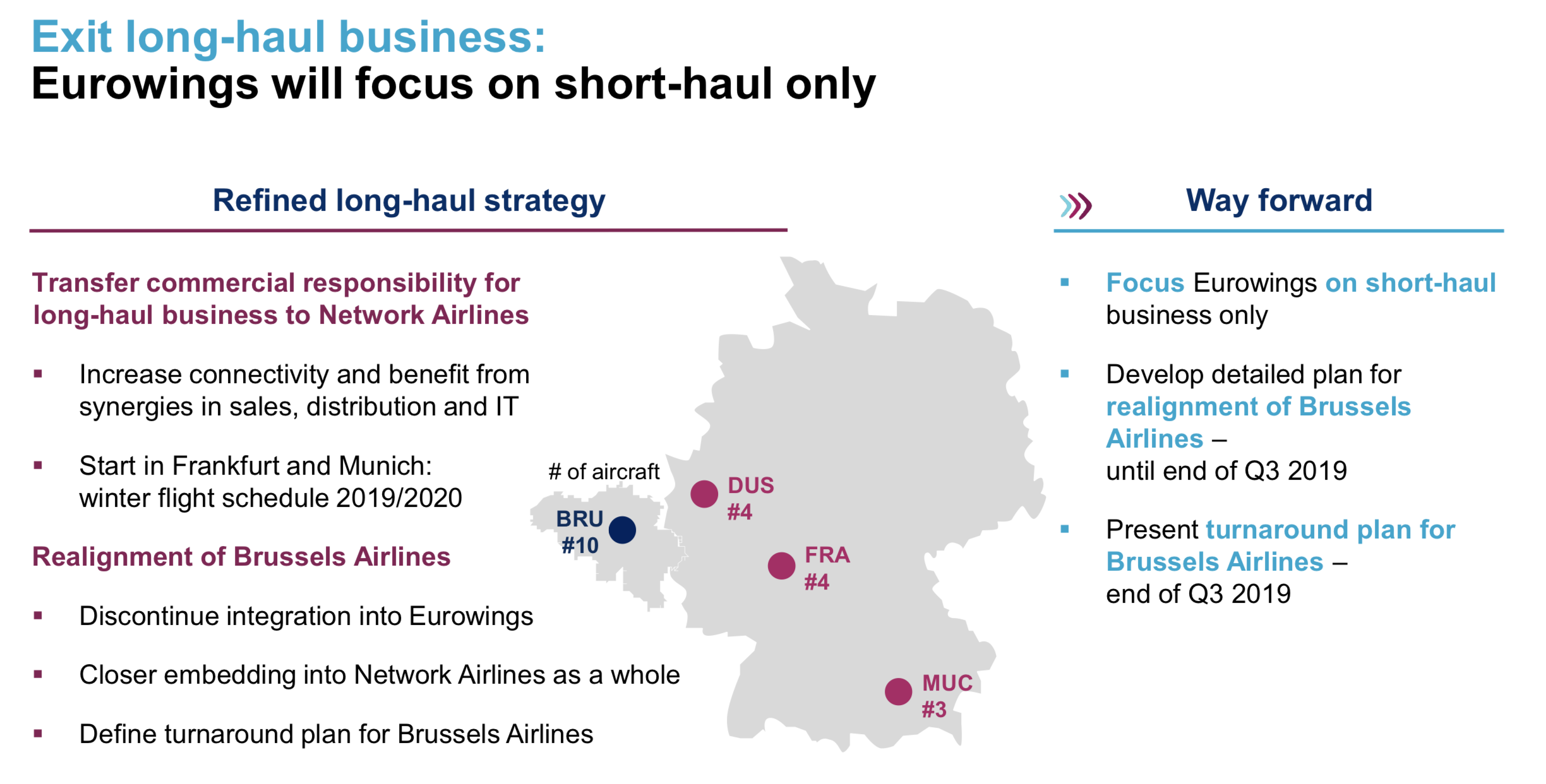

Tricky Moves On Labor
Lufthansa wants to cut costs at Eurowings…and the group as a whole. To do that, it will retire the Dash 8 turboprops in the Eurowings fleet and focus on new streams for ancillary revenue.
But that’s not all. Lufthansa will finally consolidate the still-separate Germanwings and Eurowings pilot base into a single entity, but plans an increase in both daily flight hours and days of duty. One way it will achieve this is through stricter home base scheduling, which Lufthansa hopes will reduce commute time and thereby increase actual operation time.
Ambitiously, Lufthansa wants to increase block hours per crew member from 530 today to 750 by 2022. To that I say good luck, especially since this “restructure” essentially gives Lufthansa the option of laying off a number of Eurowing employees. We have not heard any feedbacks from union yet.
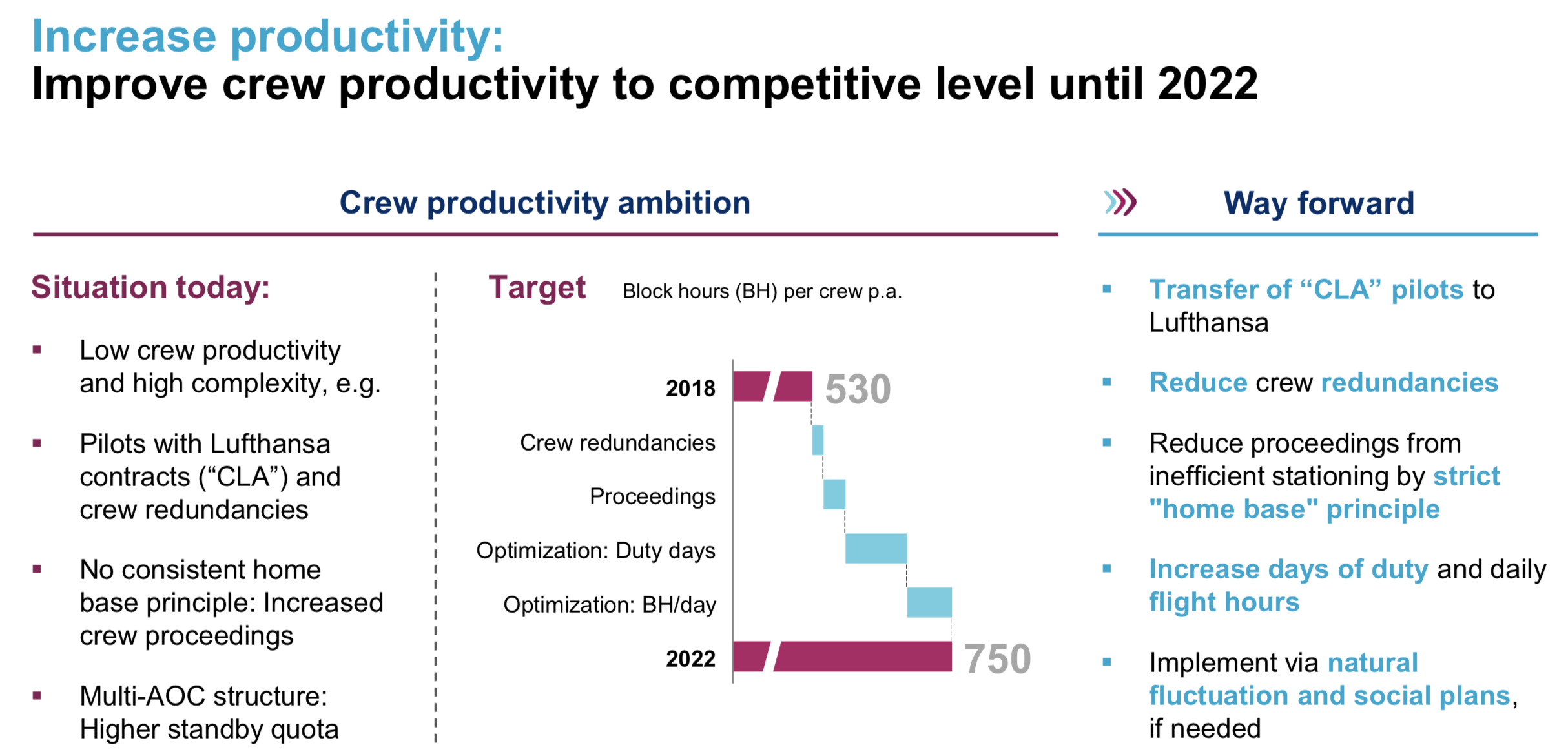
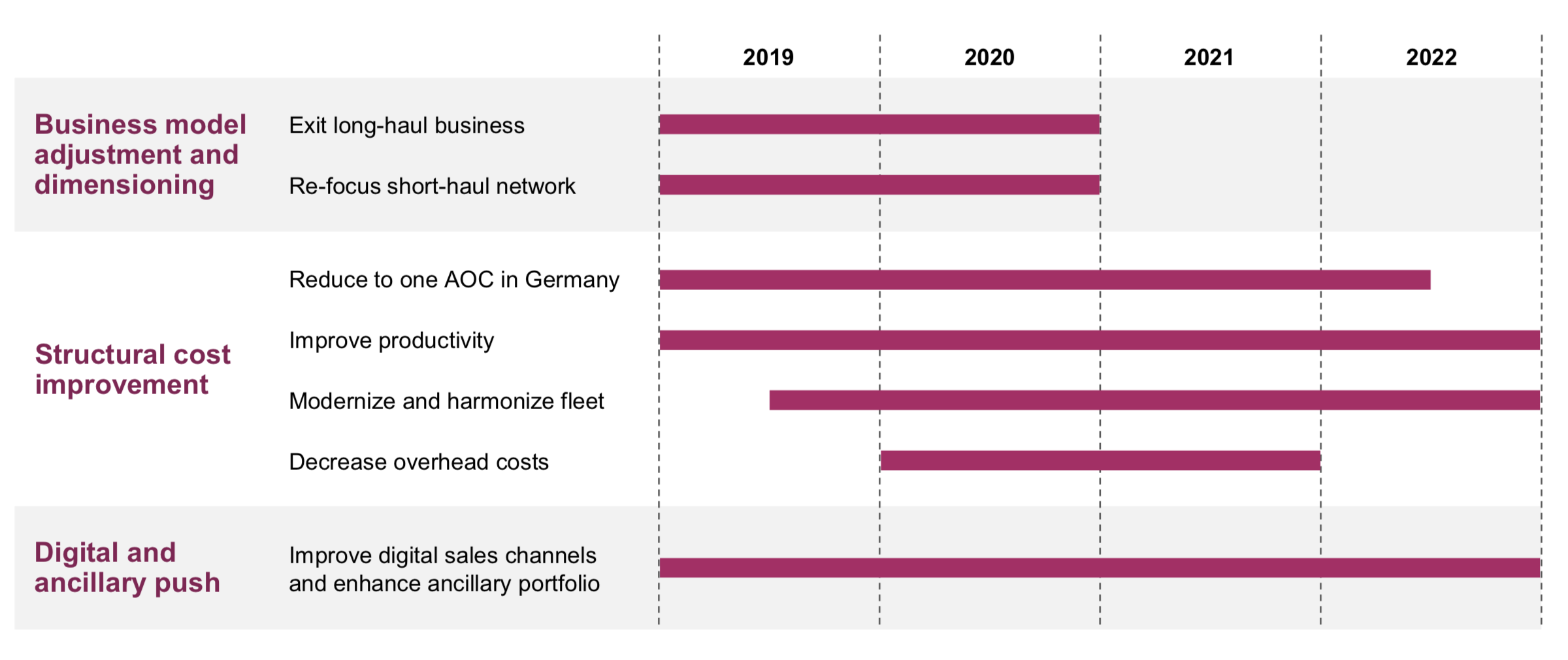
CONCLUSION
There’s a celebration in Brussels today as Brussels Airlines has been spared. But Lufthansa’s ambitious plan to ask more from its workers lays the groundwork for a messy fight in the months to come.
> Read More:Lufthansa Cabin Crews Consider New Strike
(H/T: Wandering Aramean)

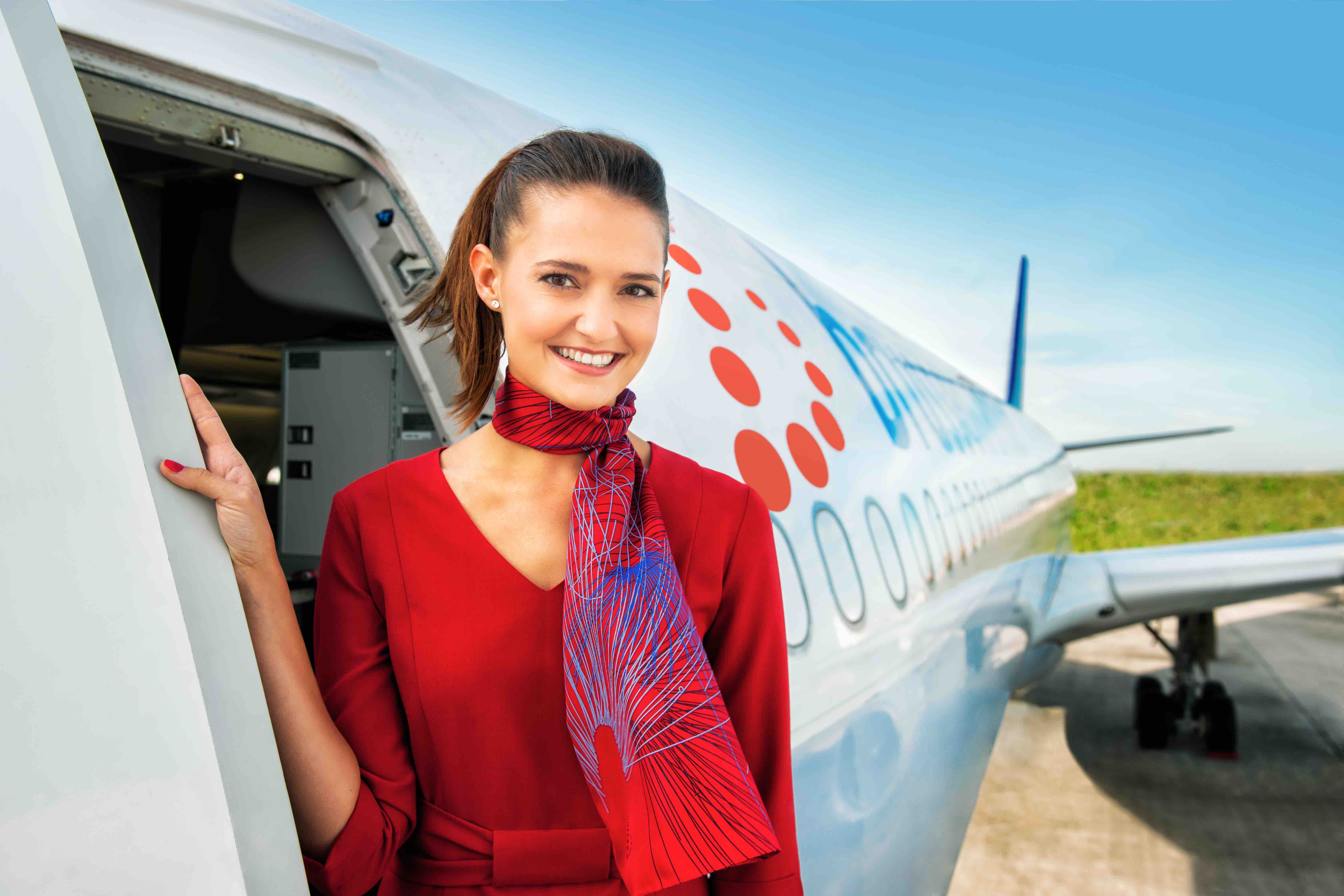

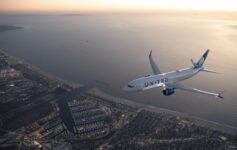
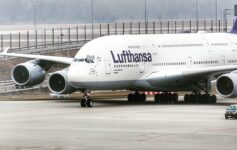
The amount of deadheading crew in uniform on LH domestic flights can be staggering… especially to more “remote” outstations. Never understood how that works. Why would a FA be based in BRE? There’s two LH flights there now as with EVERY other airport in Germany that isn’t MUC or FRA. Back in the days where LH had a base in TXL, it made sense to have pilots & FAs there. But now? What about DUS? FRA DUS is hilarious. Sometimes much of the plane is crew since no sane person would fly vs. train. So that is one thing that long ago should have been reduced, and perhaps by joining pilots under one contract those that are based in (say) TXL will simply be scheduled to fly on EW. But I’m not sure how they can force crew to quit if they don’t move to a “base” city.
@janyyc A little advice: When you have no idea about deadhead proceedings and LH bases, it‘s better not to comment.
Yield premium sounds like one of those ‘metrics’ you’d use when you screwed things up. So, I gather load factors are low, because leisure traffic is below expectation and business travelers have no choice? Then again, they have this weird model in Europe where they sell tickets for a LH experience and the fill the back.
I don’t have much experience with Eurowings. I only had one round trip with them. Four hours before departure, they cancelled the flight. I rang up the call center and was told the only flights were the next morning. So I called BS and then had to give my own routing (on LH) to the agent. In all fairness, it worked, though the MUC-CGN flight had a bunch of nominally deadheading Eurowings FAs. I say nominally, because the passenger seated next to one of them asked her for a glass of water.
So there you have it: in my limited experience I’ve seen both the stereotype that they cancel flights for no reason (wx at both ends was done) and that they’re heavy deadheaders. Is that the case system-wide? I haven’t seen the numbers.